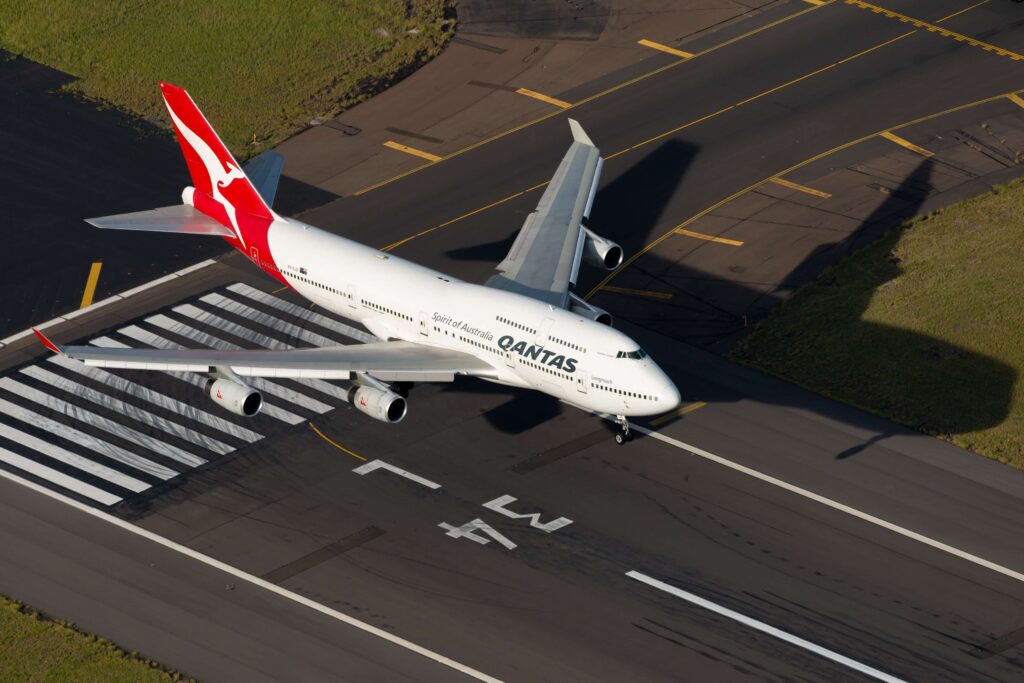The Australian Competition and Consumer Commission (ACCC) has raised concerns over Qantas Airways’ proposed acquisition of regional air carrier and wet-lease servicer provider Alliance Aviation (AQZ). The Australian watchdog said the move could restrict competition on regional routes, especially to remote areas and for transport of workers in the mining and resources sectors.
Meanwhile, Qantas has defended the planned deal, which requires approval from the ACCC..
Australian watchdog’s concerns
In an official statement released on August 18, 2022, the ACC detailed how the potential acquisition would affect the possibilities for other airlines to compete with the major Australian air carrier on regional routes.
According to ACC chair Gina Cass-Gottlieb, the proposed merger will combine two out of three major Australian operators serving Queensland and Western Australia into one. Such a move “is likely to substantially lessen competition for air transport services to and from regional and remote areas in Queensland and Western Australia for corporate customers”.
The ACC noted that the acquisition would eliminate Alliance Aviation (AQZ) as the only competitor to Qantas on the regional route connecting Brisbane (BNE) and Moranbah (MOV).
In addition, the ACC argued that since Alliance is considered a “key supplier” of wet-leased medium-sized aircraft to other airlines and crew for other local airlines, the merger could make it harder for new or established operators to compete against Qantas on regional routes.
“Our preliminary view is that there are already significant barriers for airlines who want to enter or expand their operations in regional and remote areas, including access to pilots, airport facilities and infrastructure, and associated regulatory approvals,” Cass-Gottlieb said.
“The removal of Alliance as a supplier of wet-leases or the increase in the price of wet-leases for Qantas’ competitors is likely to significantly increase these barriers,” the ACC chair added.
Qantas Airways’ response
However, Qantas Airways, which currently owns only 20% of Alliance Aviation (AQZ), stated that the deal would not have any negative effects on competition in the local charter services segment.
“There are a significant number of charter operators of different sizes and that makes it an extremely competitive segment. We’re confident our acquisition of Alliance does not substantially lessen that competition and we’ll work through the ACCC’s process to support that position and address their initial concerns,” Qantas Group executive John Gissing said in a statement from the airline on August 18, 2022.
Qantas noted that rival Rex had been given permission to buy National Jet Express from Cobham Aviation, while Virgin Australia has announced plans to buy new aircraft to expand its own resources flying.
Gissing continued: “The resources sector continues to grow and any new tender for airline services will be very competitive. It makes a lot of sense for us to combine with Alliance to improve the services we can offer, which is a positive for both airlines as well as the traveling public.”
Qantas bets on benefits of combining fleets with Alliance
Qantas Airways is considered the largest customer for Alliance. Under a wet-lease deal for 18 Embraer planes, Alliance Aviation (AQZ) flies on several routes on behalf of the Australian flag carrier.
According to Planespotters.com data, Alliance Aviation (AQZ) operates a fleet consisting of a total of 64 jets, including 25 Embraer ERJ-190s, 25 Fokker F100s, and 14 Fokker F70s.
Thus, if Qantas becomes the only holder of Alliance’s shares and combines both carriers’ fleets, it will make a significant boost to the flag carrier’s current capacity.
Having bought 20% of Alliance in February 2019, Qantas then announced in May 2022 that it had agreed to purchase the remaining 80%. The major Australian airline said the purchase should help it to “better serve the growing resources sector with a combined fleet” as well as to extend the economic life of both companies’ Fokker fleets by an additional five years.
Representing up to 2% of the aviation industry in Australia, Alliance Aviation (AQZ) currently supplies around 30% of the country’s air charter services from its operational bases in Adelaide (ADL), Cairns (CNS), and Melbourne (MEL) as well as Perth (PER), Townsville (TSV), Darwin (DRW) and Rockhampton (ROK).
In comparison to Alliance, major Australian airlines, such as Qantas Airways and Virgin Australia, supply around 23%, and 22% of charter services, respectively, with the remainder provided by a number of other operators, Qantas explained.
The ACCC is set to announce its decision on the deal on November 17, 2022.

